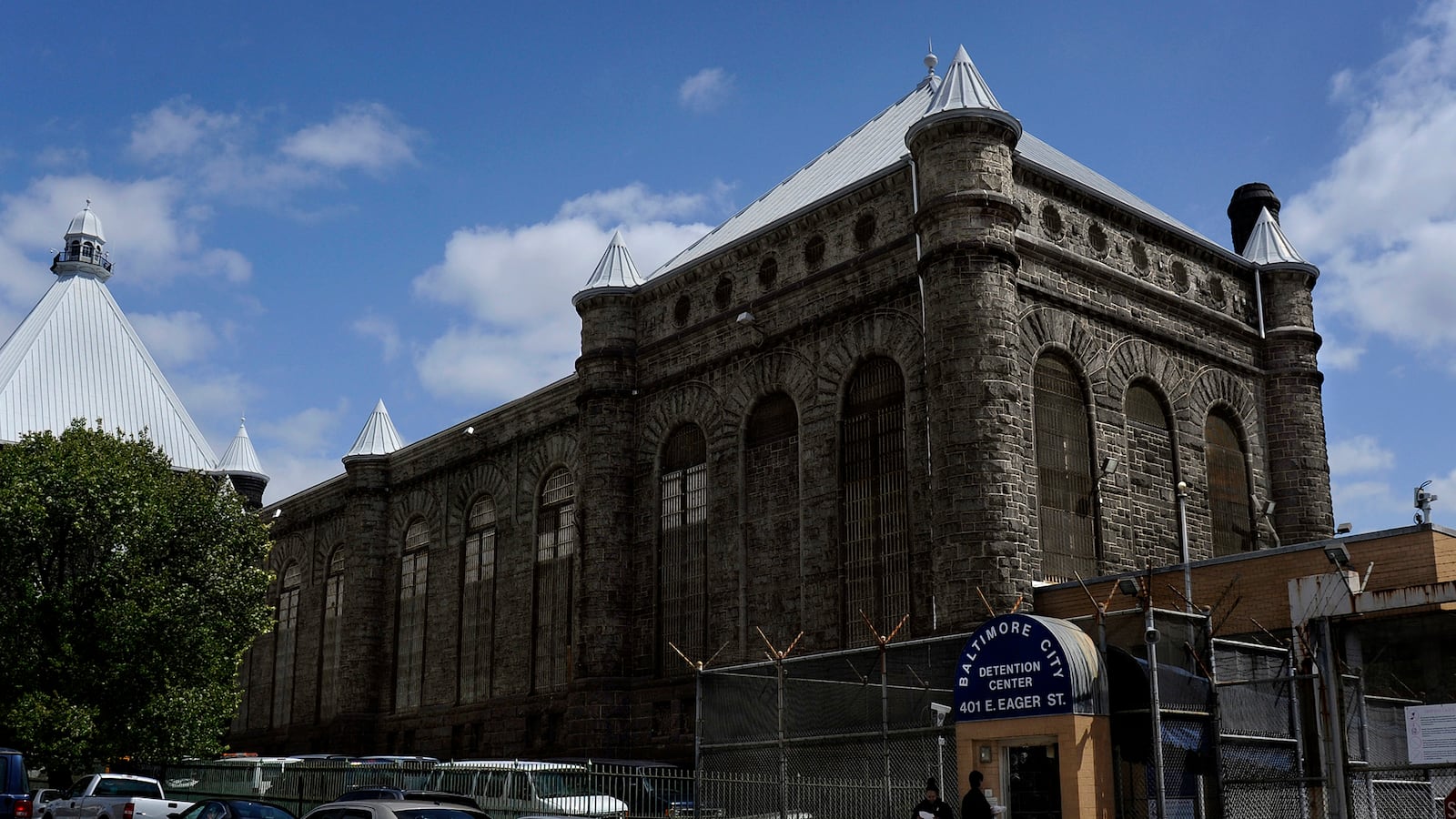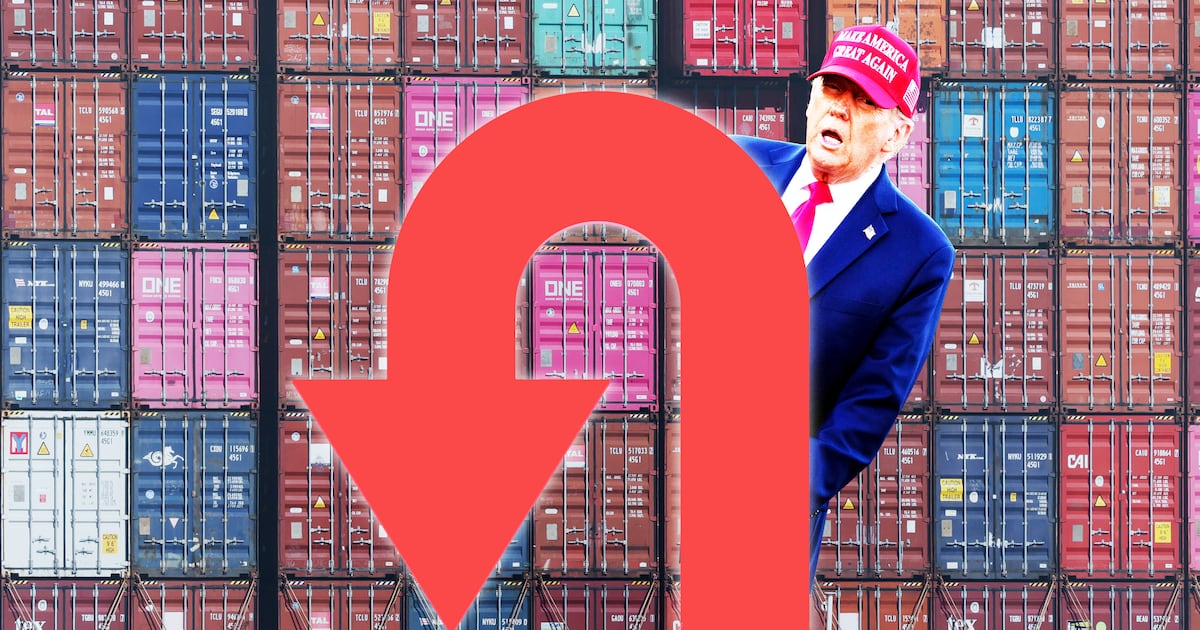To call Gary Maynard embattled doesn’t do full justice to the word.

The secretary of Maryland’s Department of Public Safety and Correctional Services watched this week as the agency he has run for the last six years turned into a national laughingstock after federal officials indicted 13 women who, as guards at the Baltimore City Detention Center, acted like little more than underlings for members of a dangerous prison gang, the Black Guerrilla Family. Four of the correctional officers became reportedly pregnant by the leader of the gang, and two of them had his name tattooed onto their bodies—one on her neck, the other on her wrist.
But in a nearly 90-minute conversation in his office, Maynard, whom state lawmakers have called on to step down, vigorously defended his tenure, saying that it was he who brought in federal investigators once it was revealed that the gang so controlled Baltimore’s jail.
“We know we are opening ourselves up to be publicly embarrassed by a lot of this,” Maynard says. “We asked for this investigation because we knew this was an issue. I knew that. I didn’t have to ask them to come. But we needed some help. The U.S. attorney’s office and the FBI bring some power to the investigation, but once that investigation becomes public, people are going to look at it and say, what is going on here? So we knew that.”
Maynard was brought on by Maryland Gov. Martin O’Malley as something of a ringer, having previously served as the director of corrections departments in Iowa, Oklahoma, and South Carolina. He has been involved, he said, in numerous prison riots and hostage situations over his three decades overseeing prison systems. He was brought on to reform what had become of one the most dangerous prison systems in the country; one saw the death of two prison officers the year before he took over. That violence has been largely stopped, and now he’s vowed to similarly curb what had become the impermeable barrier between the world outside and inside the Baltimore City Detention Center.
“The investigation is ugly. It is not the end though—it is the beginning. It is where I start to take action. So the question is, is it possible to get to the bottom of this, is it possible to run a clean jail? Yes, it is. It will not be easy. It will be painful for many. But it will happen. I can guarantee you that. Could I clean up that facility if my life depended on it? Of course I could. I can walk through the facility every single day. If my job depended on it, of course I could. If it was part of my job, of course I could. This is the biggest issue that has come to the media’s attention that I have faced in a long time.”
Indeed it is. The allegations unsealed in the federal indictment are eye-popping. Many have been quick to make the comparison to The Wire, the crime drama that put Baltimore’s criminal underworld into the public consciousness, but what appears to have gone on at the Baltimore City Detention Center, a medieval-looking hulk of a jail in the center of town, would strain the credulity of HBO. Female guards smuggled cellphones, marijuana, and prescription drugs to inmates. Gang members ordered hits from inside the jail and dined on salmon and Grey Goose vodka that was smuggled in on their behalf. Corrections officers stood guard for one another so they could have sex with inmates. They warned prisoners of upcoming searches of their cells by unfriendly colleagues. Tavon White, the leader of the Black Guerrilla Family who allegedly impregnated four of the guards and was there waiting for his murder trial to commence, was caught bragging on a wiretap: “This is my jail. You understand that? I’m dead serious. I make every final call in this jail.”
Rod Rosenstein, the U.S. attorney for the District of Maryland, who brought the case, told The Daily Beast that investigators were tipped off to the scheme when they continued to catch inmates with cellphones.
“They seemed to have a limitless supply of new phones coming in. Were people throwing them over the wall? Were they smuggling them into the visiting room? Or were they coming through the front door?”
Federal officials wiretapped one of the cellphones, Rosenstein said, and each time a gang member called out to another gang member, they were able to spin out another wiretap.
The issue is not an entirely uncommon one for jails in large urban areas. Many low-paid guards come from the same neighborhoods, and are often the same ages, as many of the inmates. The rise of the Black Guerrilla Family on the streets of Baltimore paralleled the rise of the power of the gang inside the facility. Helping out gang higher-ups on the inside adds to their power and prestige on the outside.
“You have a lot of young corrections officers that aren’t that different from the type of people in jail,” says Warren Brown, a prominent defense attorney here. “It’s all about the hustle, the fast dollar, when you work in that type of environment—and it is an ugly environment—your self-esteem is low, you are subject to the sweet nothings that the guys might be whispering to you.”
Maynard says that despite the public nature of the evidence—the tattoos, the pregnancies—it was unfair to assume, as many have, that the entire jail must have somehow been complicit. The jail is something of a small city, with 450 officers and as many as 3,500 inmates at any one time. Last year 65,000 prisoners passed through.
“Some of the publicity is a little overwrought,” says Rosenstein. “The picture that it gives the public is a little unfair. Not everybody there is corrupt. There are a lot of people there who are as outraged by this as you or I are and are supportive of reform.”
Now Maynard finds himself in awkward situation. He is being blamed for the condition of the jail, yet it is he who helped bring it to light by calling in federal investigators rather than just firing the offenders when the information came to light. And now he is charged with fixing a problem that has grown to gargantuan level during his tenure.
And the key to cleaning up the jail, he says, included more of a focus on which offenders were housed there and a “well-recruited, well-trained, well-supervised correctional staff.”
“Can I insure that staff are clean? Can I? Well, can I determine if you are dirty or clean, if you knew about this or you didn’t know about this? Of course I could. If I can do that with you, I can do that with others. If it is a matter of having a clean corrections staff, that I can solve.”
When asked what he could have done to make sure that this didn’t occur, Maynard stared at the ceiling for nearly a minute.
“I could have 10 times as much time as I did there. I could have scrutinized the leadership down there personally. Now I am not expected to do that. It is not possible for me to do that at every facility, but that is something I could have done.”
Instead, he says, he was focused on curbing the prison system’s gang problem.
“If I had focused there instead of the other problem, there probably wouldn’t be a problem there. There would be more people dead, but there wouldn’t be a probe.”
“A year from now, you will come back and say, you’ve got flat tires on your fleet. How come you didn’t focus on that?”
In the meantime he says he plans to devote the full resources of his office to solve the issue at the local jail. Steps were being taken immediately, he says, but declines to reveal specifics.
“The media would like to see the statement that heads are going to roll. I’ve seen that for a thousand years. They want to see someone fired. I am not into making a good story. I am into solving the problem.”
Throughout the interview, Maynard’s cellphone rang. It was, he says, mostly people calling him to offer their support.
His golf partner rang at one point, too, wondering, Maynard guessed, if their golf game was still on.
It was.
“I will be hitting the ball with great intensity,” he says. “I do play better when I am angry.”





